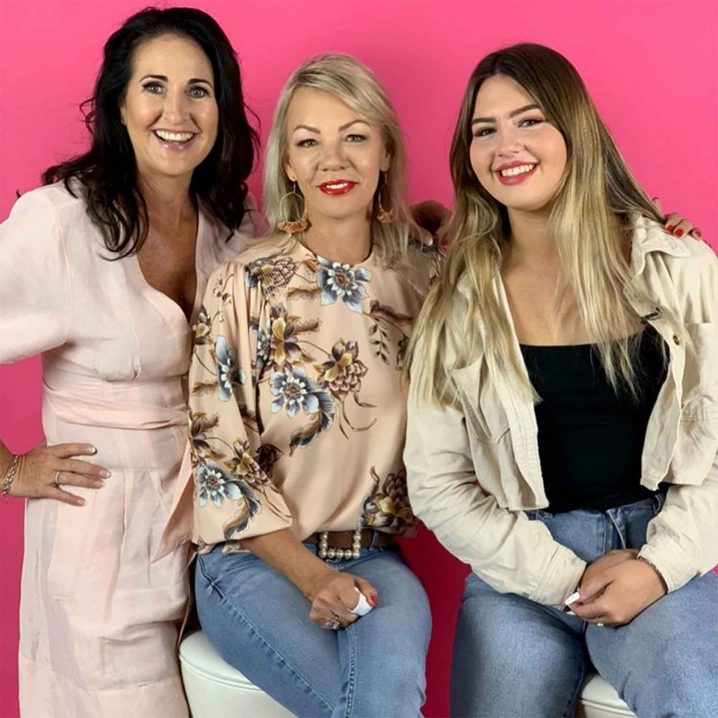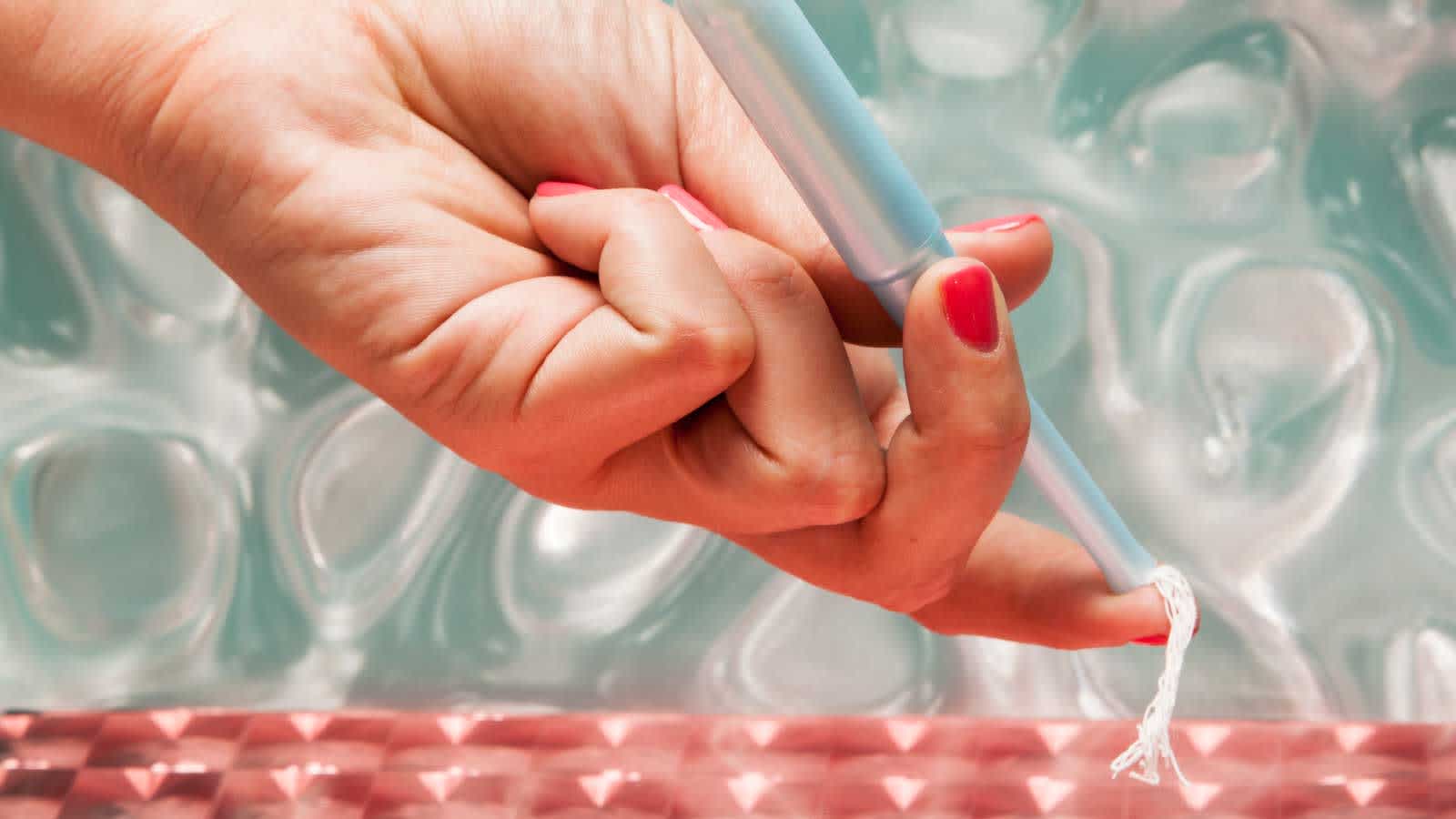
- POPSUGAR Australia
- Fitness
- The Reality of What It’s Like to Experience Period Poverty
The Reality of What It’s Like to Experience Period Poverty


In partnership with Modibodi.
Welcome to POPSUGAR Uninhibited, a space where anyone with a period can come for advice, recommendations and support. Here, we’ll tackle topics like PMS, sustainability, post-partum periods and bring you first-person experiences in our period diaries. We also want to raise awareness around period poverty, with the aim to ignite change with the help of our launch partner Modibodi and charity partner Share the Dignity. You can find all of the stories here.
One in five Australians who menstruate have had to improvise on period products due to the cost. With 3.24 million people living below the poverty line — and with a large portion of these being people who menstruate — the levels of period poverty in Australia are far too high.
This experience is not unique, even for a wealthy country like ours. Mother-of-two Kim (above middle), who is based in Queensland, has had to improvise on period products in the past. From the ages of 15 to 18, this was a common occurrence for Kim, who had already moved out of home.
During this time, Kim relied on toilet paper to catch her period. Otherwise, Kim would cut a washer in half and fill it with cotton wool as an alternative to pads. “It was very, very difficult to financially put a roof over my head as well as food, clothing, and transport and periods came last,” Kim told POPSUGAR Australia.
After experiencing period poverty at different stages in her life, Kim is extremely passionate about seeing an end to it here in Australia and meeting Share the Dignity founder Rochelle Courtenay (above left) inspired Kim to get involved with the wonderful work Courtenay and her team are doing.
“I’m really excited about the change that Share the Dignity is making and how they are celebrating periods but they are also really putting the volume on just how much it does affect you,” Kim said. “Dignity is something really hard to find when you lose it. It’s so hard to find. The little things Share the Dignity do give people back the dignity that you need to feel good about yourself.”
We were lucky enough to chat with Kim about her experience of period poverty in Australia.
POPSUGAR Australia: Could you please tell us about your experience with period poverty?
Kim: I left home at 15 — for context, I’ve just turned 50 — and when I got my period, I was 13 and I think in that era of the early ’80s, there was still shame and stigma about periods. I was on school holidays down at my grandparents when I got my period for the first time and my grandma had called my mum and said ‘she has her period’ and my mum said ‘send her home immediately’.
That was my introduction to how I should feel if I have my period, which is ‘get home’. I was conditioned that you need to come home and stay home when you have your period. I left home at 15 and it was very, very difficult to financially put a roof over my head as well as food, clothing, transport and periods came last.
They were something that I improvised. From the age of 15 to 18, I would either use toilet paper or, at the time, I was doing tea and tidy at a hairdressers salon on Thursday nights and Saturday mornings back when we didn’t have everyday trading, and there was cotton wool that the hairdresser used to use for perms, so I would use that.
I would cut a washer in half and put the cotton wool inside. Even cotton wool, for my budget, when I was trying to keep a roof over my head, it just wasn’t viable. It was an expense I couldn’t afford.
There were times, especially from 13 to 15, that if I got my period, then I didn’t play sport — I played state-level zone netball at the time. This is a monthly event for people, it’s not biannual. For many, it’s seven days every single month.
When I had my eldest daughter, I went through domestic violence and then period products became another expense that I just couldn’t find the money for. Thankfully, Share the Dignity is everywhere now, so if you go into a DV shelter, you’ve got a bag from them filled with period products.
We are blessed to be women and I think it is a great time for women to be women but you don’t get a choice. You don’t get a choice whether you get your period or not. It’s often been seen as a curse, like ‘oh I’ve got my period.’ It’s never been something we’ve been proud of and Rochelle’s really changed that direction.
The cleanliness and hygiene around periods shouldn’t be a privilege to have access to it. It should be our birthright to have access and freedom and we do have many wonderful things like period undies and menstrual cups now but they are also an expense, which is often not a priority for many people.
PS: You mentioned the shame and stigma attached to periods when you were growing up. How did you handle those conversations with your own children?
Kim: My youngest, who is now 17, got her period when she was 11. I wasn’t ready for that, because her eldest sister got it at 15. I vividly remember the day like it was just a few hours ago. She had woken up and was getting ready to head off to school and I came in and she said, ‘Mum, I’ve got my period!’.
It was this really bittersweet feeling for me. My eldest was living at the coast and I just had pantyliners for myself but I had nothing in the house for her and then came that stumble of like ‘oh my gosh, how do I deal with this? We haven’t had the talk. She’s only 11.’
That was my other realisation that people are getting their periods at a younger age, which means people are having the expense for longer periods of time.
There was also this internal struggle of ‘do I tell someone? Should I be proud of this? Or should I not be proud of this?’ That was a really big eye-opener for me when I met Rochelle because I realised that I still carried that shame. I think shame is a really heavy feeling. It’s an incredibly heavy feeling.
I still had that shame about, ‘oh, my gosh, she’s got a period. This is terrible. This is disgusting.’ It was an internal fight for me but the maternal lioness in me was like ‘I need to go and get supplies. I never want her to be without.’
So I jumped in the car and went to the shops and the whole basket was filled with pads, tampons, overnight pads, pads, pads, pads and every brand that I could get. When I got home, I was like, ‘okay, what do you need?’ and she went, ‘Mum, I think just the one pad will be fine’ and she was quite excited and I said, ‘would you like to stay home?’ and she said, ‘no, no, I’m going to school.’
Even on the trip to school, I thought ‘I should be really excited about this. She’s become a woman, this is something she should be celebrating’. Then the change came for me when we arrived at school and my daughter Olivia wanted to tell her beautiful year five teacher.
Olivia was really proud that she was a big girl now and her teacher gave her a big hug and said ‘welcome, you’re now a young lady.’ That really changed how I was thinking and that I didn’t need to be embarrassed about this. I didn’t need to carry shame about this.
There was a conscious decision I made from then that there would always be period products in our house. My daughter is fairly social and there are always people at our house and in the pool, so our bathroom always has a great array of pantyliners, pads, tampons, pads with wings and tampons with applicators.
PS: How did you become involved with Share the Dignity?
Kim: Rochelle and I met each other on a Wise Women’s retreat in Noosa in September last year. There were some amazing women there from all different backgrounds and the retreat was all about emotional fitness. On the second day, Rochelle and I just clicked.
She had said ‘I’m heading to the pool’ and I said, ‘are we allowed to wag the next session?’ and she goes, ‘I’m going to sit by the pool’. Water is my safe place and I love what water does to us, so I said ‘I’d really love to go to the pool and just sit back.’ She goes, ‘I’m going’ and I thought ‘If she’s going, I’m going!’
Since then, I’ve fallen totally in love with what Share the Dignity represents and its cause and what it’s achieved as well as how passionate Rochelle is. She’s really proud to be the period lady, she’s really proud to be the pad lady. And the change she’s made is real. If you’ve had to improvise, or if you’ve had nothing and you’ve soiled your clothes, or if you’re just really down on your luck, to have Share the Dignity provide what they provide is so helpful.
Dignity is something really hard to find when you lose it. It’s so hard to find. The little things Share the Dignity do give people back the dignity that you need to feel good about yourself.
I’m really excited about the change that Share the Dignity is making and how they are celebrating periods but they are also really putting the volume on just how much it does affect you. I recently spoke to a lady who said, ‘well I suppose I’m lucky to have period products.’ And I said, ‘no, no one’s lucky to have access to period products You’re not lucky to have access to it. We should all have that.’
PS: As someone who has experienced period poverty, what do you wish Australians knew about period poverty?
Kim: I think they need to know how much there is of it. Like in hospitals, in remote places, as well as all of the vulnerable people who experience it. We know the stats of how many vulnerable women and girls we have and these are the areas where Share the Dignity is making a change.
For people to feel stronger and safer, the government does need to cough up and help with vending machines and cough up and help with putting period products in hospitals because they don’t have sanitary items in hospitals. If you happen to get your period while in hospital, they might give you dressing gauze or ask you to get someone to bring period products from home.
I don’t have aunties, uncles, mothers and fathers or brothers and sisters, I have a beautiful tribe but if I was in hospital tomorrow and my daughter didn’t live with me, then I’d be left to my own devices. When you’re in hospital, you’re already vulnerable. I don’t want to feel bad about my period and not have access to products.
We don’t get a choice. I have no choice whether I get my period. We have no choice how long we bleed for. I think when you have no choice that already equips you with ways to compensate but if you’re a vulnerable person in hospital or in a DD or homeless shelter, then you have even less choice.
For more information, head to the Share the Dignity website.


